Paying Attention to the Apocalypse
A reflection on the 2016 video game Everybody's Gone to the Rapture
In her book Gravity and Grace, Simone Weil stated rather famously that ‘attention is the rarest and most generous form of generosity.’ Weil places attention over and against the use of the will as a way to overcome limitations:
The will only controls a few movements of a few muscles, and these movements are associated with the idea of the change of position of nearby objects. I can will to put my hand flat on the table. If inner purity, inspiration or truth of thought were necessarily associated with attitudes of this kind, they might be the object of will. As this is not the case, we can only beg for them… Or should we cease to desire them? What could be worse? Inner supplication is the only reasonable way, for it avoids stiffening muscles which have nothing to do with the matter. What could be more stupid than to tighten up our muscles and set our jaws about virtue, or poetry, or the solution of a problem. Attention is something quite different.1
Weil goes on to say that attention is ‘bound up with desire’, and that this sense of desire contrasts the use of the will, for it doesn’t seek to overpower meaning and commandeer it for its own use, but rather opens itself to ‘consent’:
We liberate energy in ourselves, but it constantly reattaches itself. How are we to liberate it entirely? We have to desire that it should be done in us — to desire it truly — simply to desire it, not to try to accomplish it. For every attempt in that direction is vain and has to be dearly paid for. In such a work all that I call ‘I’ has to be passive. Attention alone — that attention which is so full that the ‘I’ disappears — is required of me. I have to deprive all that I call ‘I’ of the light of my attention and turn it on to that which cannot be conceived.
This openness to ‘energy’, as Weil calls it – to meaning and direction – cannot be had by our grasping at it through our own intention, but rather through our making ourselves available to receive, and to experience.
This word from Weil strikes me as particularly prescient for our own moment. We are suffused in the patterns of distraction and disintegration in every corner of our lives. We are evermore online, and yet exponentially more disconnected from each other, and ourselves. Even as the world around us grows more unstable and violent, we delve deeper and deeper into the dazzling myth that the technobros of Silicon Valley promise us in their data-obsessed drive to end privacy and inaugurate an age of AI. Our ability to look up and see each other and the world as it is given to us is atrophying like the unused muscle that it is.
On the one hand, we may see this as a problem of passivity, of our inability to resist the alluring power of our devices and the connected sphere in which we all now live. Certainly, there is something to be said for the addictive power of mobile devices and the harm social media accounts can bring about. And yet I think there is another factor at work here, one which Weil insightfully unveils in her observations: our resistance to exist even for a moment in a posture in which we relinquish complete control over the experience of our lives.
Weil calls this ‘pride’, a ‘tightening of muscles’ that reveals a ‘lack of grace.’ It is the belief – perhaps tacitly held and yet no less potent for that fact – that we are ultimately in command of our lives, and will allow nothing to act upon us from outside of us. We are caught in the confines of a belief that nothing really can be true that does not come directly to us and present itself for our use. This little axiom, so simple in its formulation, nonetheless has a spillover effect into every area of our lives: how we relate to our nearest and dearest; how we treat the other, the person who is not like us; the manner in which we interact with the natural world; the way we perceive the presence or absence of God.
Weil offers another pathway: not will, but desire. In constricting the muscles of our control, of our self-protection, we equally suppress the very heart of desire which compels us out of ourselves. Our desires become foreshortened and simplistic, lacking the depth of possibility and meaning that they intrinsically contain, and toward which they gesture. We sense, in the inmost feelings of our heart, a draw to exceed ourselves, and to find in the other the significance and completion we lack in ourselves. There is only one escape, Weil says, and that is to loose the muscles of our control, and to open ourselves in attention to what might be given to us from outside of us. This, Weil says, is at the heart of faith:
Attention, taken to its highest degree, is the same thing as prayer. It presupposes faith and love.
Absolutely unmixed attention is prayer.
In prayer, Weil points us to an openness of meaning, to the journey of dialogue which carries us beyond what we can control and into a posture of relationship, seeking that synthesis of mutuality, giving and receiving from others – from our friends, families, neighbours, the natural world, and ultimately, from God, who is constantly speaking to us in and through everything and everyone.
Attention and apocalypse in Everybody’s Gone to the Rapture
These themes are uniquely encapsulated in one of my very favourite video games, now almost a decade old, Everybody’s Gone to the Rapture. This enigmatic title from 2016 seems to have that strange quality of being either adored or detested, depending on the participant. It fits within the genre of gaming known as the ‘walking simulator,’ an elegant term for a very simple concept. In an age of staggering combinations of pushable buttons, pullable triggers, and navigable joysticks which might, in various permutations and combinations, translate to dozens of different actions on-screen, Rapture decidedly bucks this trend, centred only upon movement forward, backward, and side to side. Taking this to an even greater extreme, the movement in-game is set at a glacial pace, requiring long stretches of time to move from one side of a given area of gameplay to another. (Initially, the experience was, in fact, so tedious that the game designers reluctantly added a rather meagre ‘run’ function, barely quicker than the standard pace.)
At its simplest, this allows even the most uninitiated of players to give the game a go. However, the mechanics of movement serve a much larger end. The story takes place in the fictional town of Yaughton, set amid an idyllic Shropshire landscape. Contrasting the setting of cosy cottages and bucolic forest pathways is the stark and immediate realisation that something in this town has gone horribly wrong. For starters, the village is utterly empty, as if the whole population fled in an instant. Within the first few minutes of the story, it becomes clear some sort catastrophe has occurred, with bits and pieces of evidence strewn among the erstwhile English pastoral. Cars stand stranded alongside roadways; doors are left open into various houses; signs of civil unrest are strewn along cobbled streets and snug gardens. Even more disturbingly, it becomes clear some sort of illness seems to have overcome the population, with hysteria following close behind.
Adding to the intrigue is the main engine of storytelling, namely, manifestations of light that act like photographic negatives left over from past events. These windows into the past reveal a multitude of characters coming to terms with the fearful reality descending upon the town. The events are asynchronous, sometimes seeming to occur weeks in the past, and sometimes much closer at hand. In one moment, the player may confront a scene of chaos seemingly late in the chronology; in the next moment, they may be immersed into a cheerful memory of neighbours greeting each other on a normal spring morning. It is up to the player to make sense of the timeline, slowly reconstructing it piece by piece.
Belying the ostensibly stagnant mechanics of gameplay, this presses the player into a posture of attentiveness and curiosity, eyes open to the environment around them. This attention is rewarded by story-world overflowing with natural beauty, gorgeously rendered and deeply detailed. The resplendent scenes of English countryside are directly juxtaposed alongside the mayhem spilling out of every new manifestation of light. In and around these scenes, the game soundtrack, written in the style of English pastoral chamber music and interspersed with choral Anglican chant and Psalmody sung by a soaring soprano solo, tilts the player into the metaphysical dimensions that seem to attend to this unsettling world.
The contrast between this sonic and visual beauty and the human intensity rising to view through each new manifestation is soon given resonance in the narratives we pick up from different characters that recur throughout the story, especially Kate Collins and her husband, Stephen Appleton. Both are researchers at a nearby observatory, and both are drawn quickly and obsessively into confronting the meaning of the upheaval overtaking the village. Stephen sees the happenings around him as a threat to be thwarted; but Kate espies something of import operating beneath the bedlam: a repeating pattern, rational and logical, which might help make sense of what is happening to the town.
While these two interpretations of events help delimit our experience of the story, they are placed within a far wider cast of characters dealing with far more prosaic problems and concerns: Fr. Jeremy, a priest struggling to care for his parish while in a crisis of faith; Wendy Boyles, a gossipy woman overly concerned about her birds and other people’s happenings; Frank Appleton, Wendy’s estranged brother grieving the recent loss of his wife; and Lizzy, a former love interest of Stephen who finds herself caught between Stephen’s unresolved feelings for her, and Kate’s prickly reception of her. Amid the cosmic happenings at hand, each of these characters and their very rooted frustrations, hopes, angers, fears, and loves persistently return to the surface.
These mundane and not-so-mundane intertwined storylines gradually gather to a point, affording to the participant a glimpse of a deeper theme at hand: how, and why, when facing existential crisis, people do or don’t ultimately seek out deeper patterns of meaning and fate. The game doesn’t provide easy answers, often closing out a harrowing scene by returning them to a world of natural glory, of tree leaves interspersed with radiant dusk light, and the ever-present music dripping with sacred overtones.
And yet this isn’t only for the characters in the game to discover; it is for us as well. Over time, we begin to recognise, in the disparate lines of trouble, heartbreak, and longing, a strange interconnectedness between these characters. Their lives, so lonely, wrapped up in their own concerns and preoccupations, are cast outward like electric currents, crashing into and through each other’s stories. The singularity of their themes are recapitulated in strange, unforeseen ways in the lives around them, where they are transformed, whether for good or ill. The cosmic puzzle of the cataclysm which Kate and Stephen are attempting to solve is transmuted into the ordinary, and it is there that we slowly begin to see: our purpose as players isn’t, as we might have imagined at first, to crack the code, but rather, like at least some of the characters we encounter, to witness, to attend, and to behold; to live the mystery.
In this way, for those players willing to make themselves available to the ‘event’ disclosed herein, the allegedly boring gameplay is turned on its head. It is only in accepting the limits of the gradual, circuitous unveiling, set within a gaming experience replete with both semiotic import and sensory immersion, that the player might encounter the underlying meaning of the story, given only in the sideways glance, and never directly. The game is, in this sense, a Rorschach test: for those who refuse to make themselves available to this pattern, they will see the game as boring, and empty of value; for those who choose to enter its rhythms, they find within it an underlying radiance shining up from within.
Everybody’s Gone to the Rapture feels perennial to me in many ways. In some senses, while the game was praised for its elegant art design and execution, ten years on, the gaming world with its evermore astounding graphical capacities, has left it in the dust. And yet, it is precisely in not being the flashiest and the most demanding that Rapture truly shines. On the surface, gaming, as an art form, seems to be a more immersive, interactive form of visual experience, compared to fine art or even television and film. And yet, in the immediacy of its satisfaction through constant controller input and response, it can obscure that unique capacity of visual artistry to demand time, silence, and attention so as to open up its interior meaning. In its resistance to that more popular model of instant gratification, Rapture leans into that older, more time-honoured dimension of the visual, seeking to inculcate in its participants an attitude of attention, reception, and openness to the pattern.
Its theme of apocalypse also only grows more relevant by the year. Much to our dismay, we find ourselves asking those existential questions that seemed so resolved only a couple of decades ago. Will we have the wherewithal to respond to the environmental crisis? Will we endure through the rising tide of authoritarianism, violence, and war? Will we survive the advent of artificial intelligence? Echoing Weil, Rapture tells us that to understand our place in this time and how we navigate these pressing questions, our first act of resistance must be to remove ourselves from the relentlessness cycles modernity which promise us a deceptive level of control. For when our lives are constructed around control, we relate to the world in embattlement, seeing it only as that which threatens our closely-constructed security. For anything which must come under our command must first be broken under our will. There is no true communion in this way of being, only subjugation; we cannot truly participate in that which we also wish to dominate.
The pathways that lead into participation in the patterns of meaning still exist, as they have for time immemorial. They invite us to let down our guard, open up to receiving the world in all its complications. It doesn’t mean the eradication of suffering and the possibility of hurt; but it does offer the only pathway to true encounter, true communion. For in letting go of the idea of ourselves as the summit of all meaning, we begin to look outward, seeking the signs of the pattern in others and in the world around us. We take up the rhythms of attention that open us up to that revelation of meaning: loving our neighbours, and our families, and receiving their love in return; planting trees and gardens; practicing the old liturgies of praise and prayer and petition; forgiving; imagining; wondering. Such acts are fidelity to the pattern of meaning that preceded this moment in history and will last beyond it too, even if it must be started from scratch in the aftermath of it. Of course, this is precisely what apocalypse is; the word literally means, ‘unveiling.’ Beneath the grey uncertainty and fear of our time is this gem-bright reality, always at the ready for us to discover, and to attend.
For as Weil says, our attention is prayer. And for as long as we can pray, we can hope. So let us offer our faithful attention to the world and all that is in it as an act of prayer; and in that act hold to the hope that our intentions are held in a grace that transcends us and carries us to the heart of Love itself.
All quotes taken from Simone Weil, Gravity and Grace, trans. Emma Crawford and Mario von der Ruhr (London and New York: Routledge, 2002), 116-118.




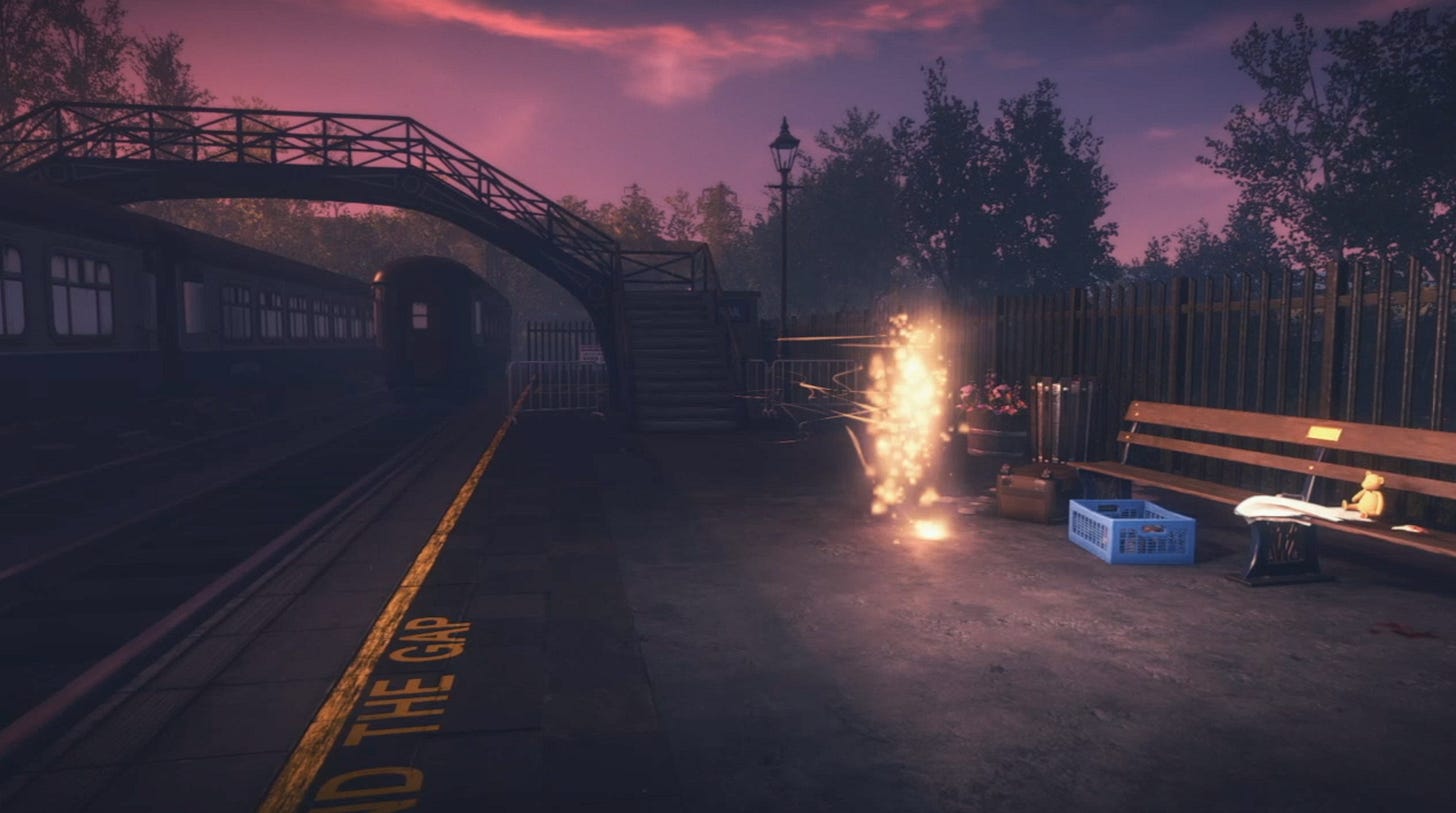
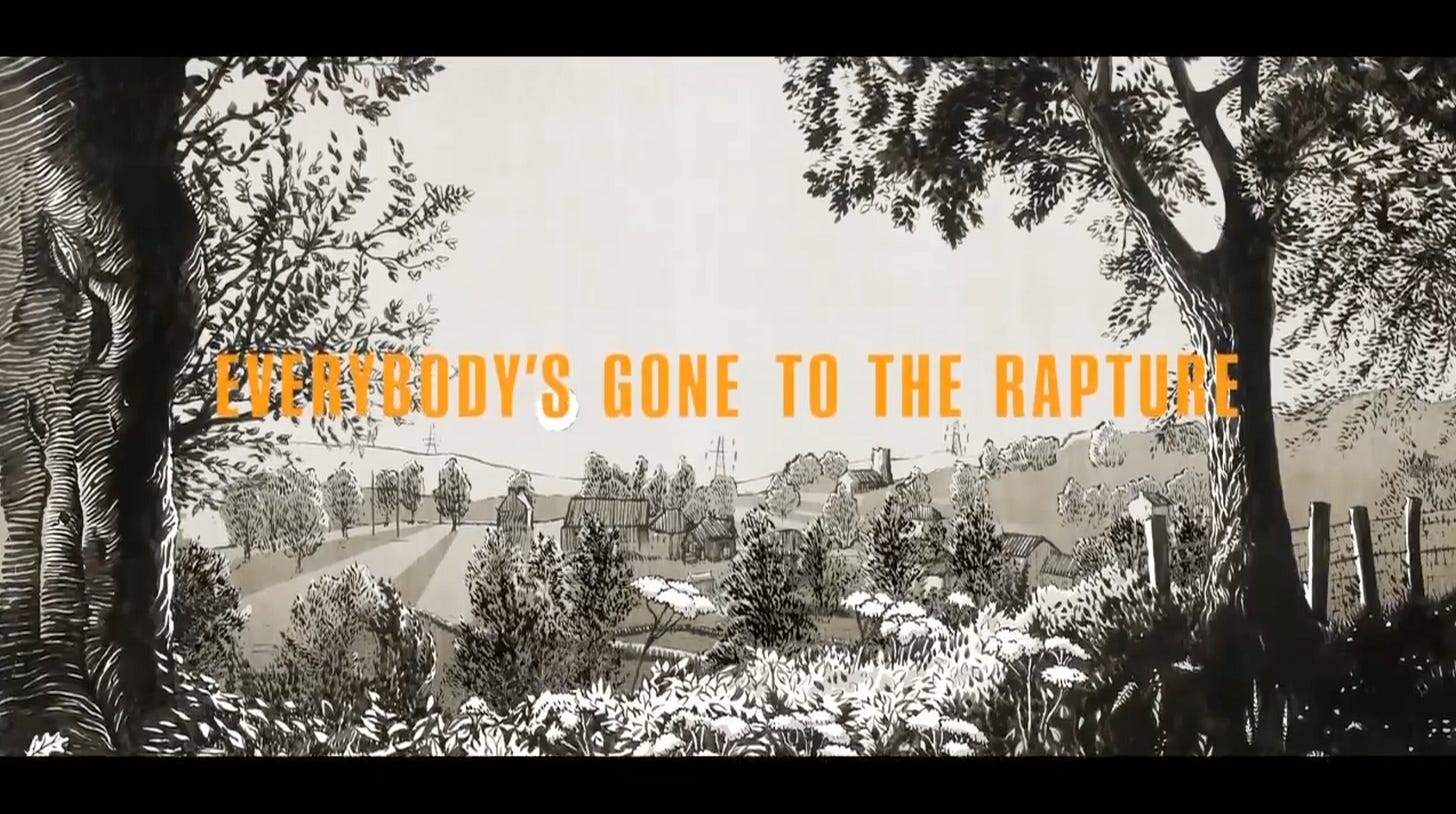
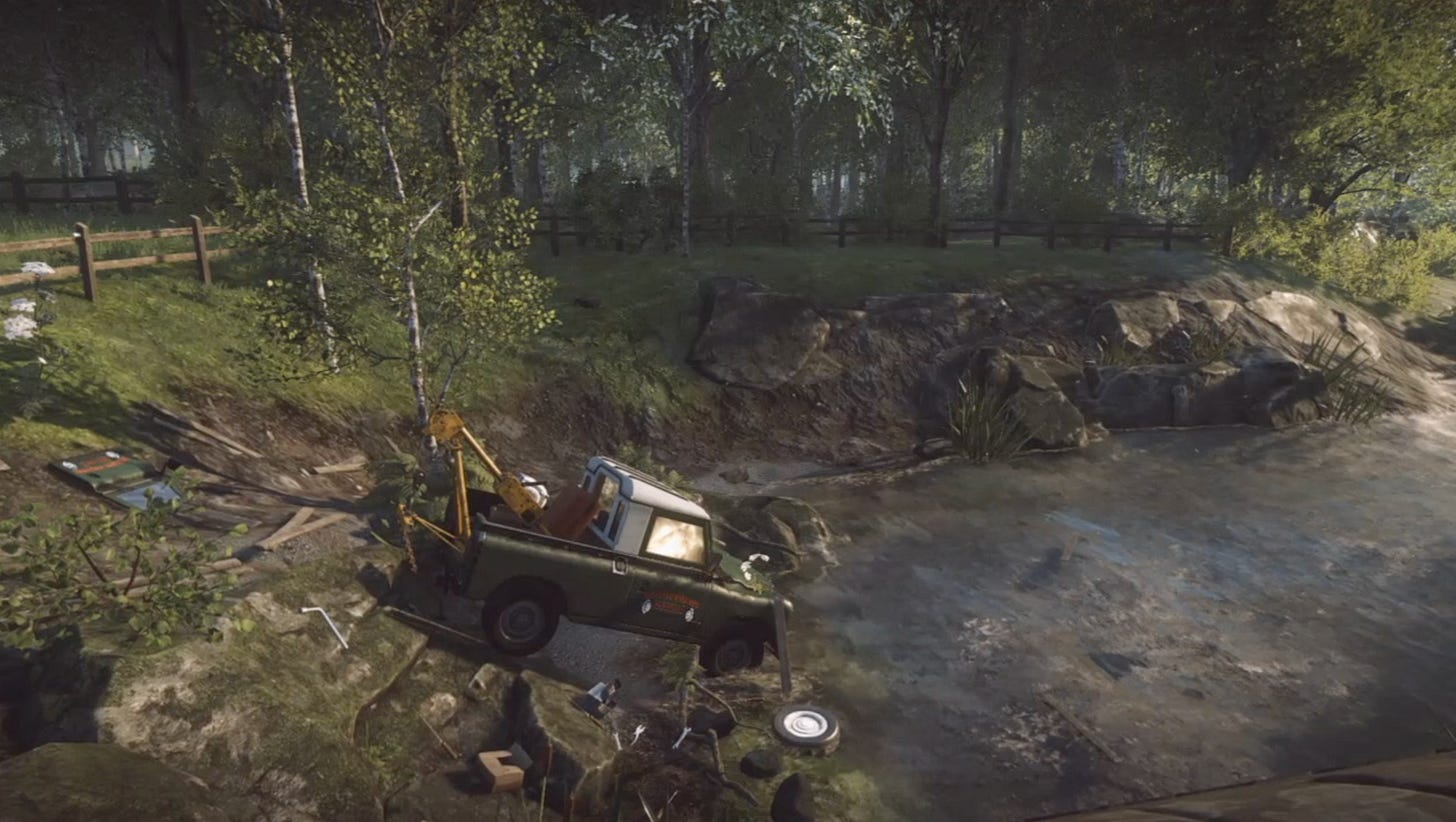
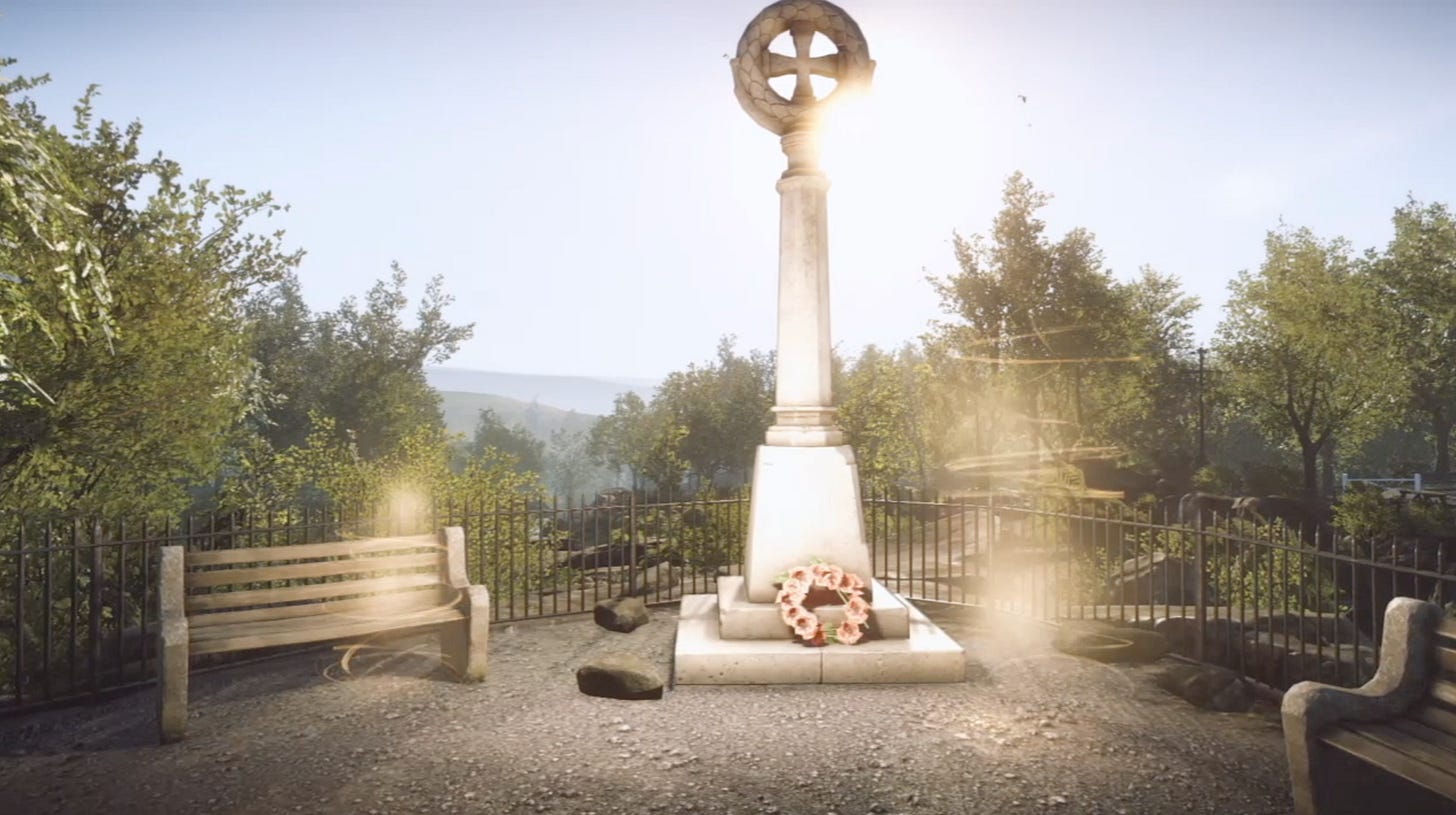
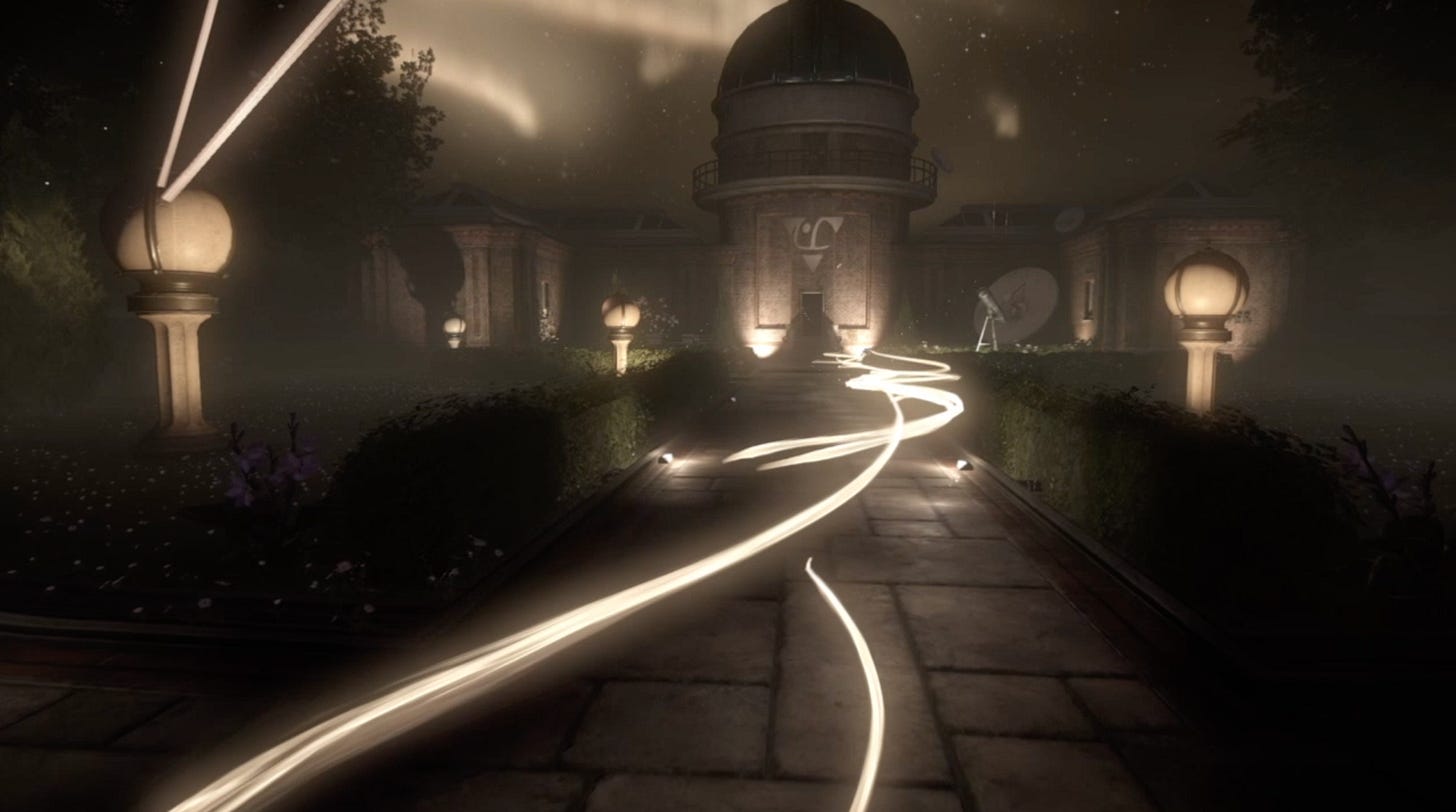
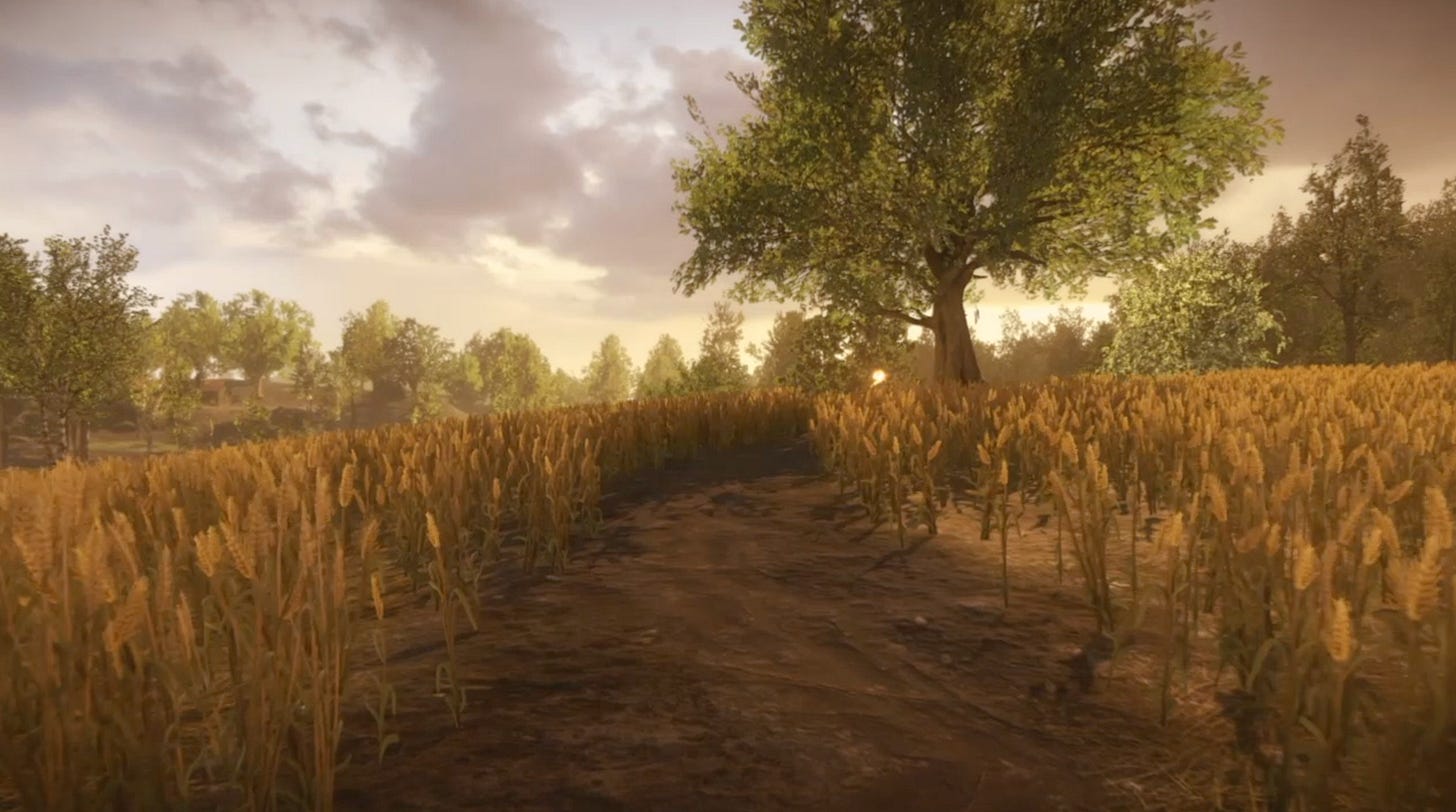
Joel, your last two paragraphs really hit the areas I have been wrestling with, and talking with my family about lately. How very true your words, so well put, about what is happening around us at breakneck speed with little to no care as to whether it's actually good for us as human beings. I appreciated your last paragraph very much. I couldn't agree with you more!
Loved this reflection! It was so apt as I had just been chatting to a fellow theology student about how I would love to theologically reflect on gaming (as someone who isn't a gamer but finds it fascinating). And this was so good.